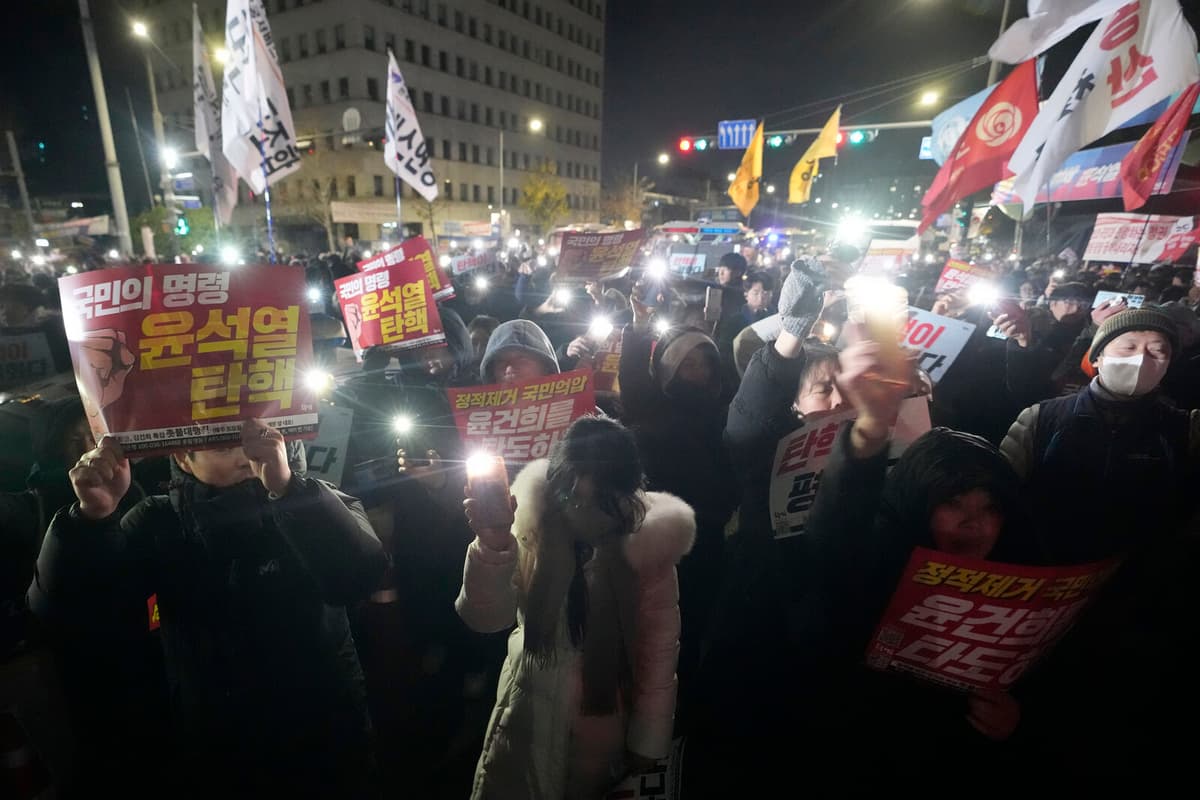On Tuesday, South Korean President Yoon Suk-Yeol announced that he was introducing martial law or a special state of emergency to protect the country from "communist forces". Just a few hours after the heavily criticized announcement, he is now lifting the state of emergency.
We will immediately accept the National Assembly's demands ... to repeal the martial law, he says.
Accused of ties to North Korea
However, he urges the National Assembly to immediately "stop paralyzing the country's operations with repeated impeachment processes, legislative conflicts, and budget conflicts".
The liberal opposition party, the Democratic Party (DP), called its parliamentarians to an emergency meeting directly after Yoon's announcement earlier in the evening. At the opposition's request, hundreds of demonstrators gathered in front of the parliament.
After the announcement of the state of emergency, the parliament voted just a few hours ago to repeal the martial law. According to South Korean law, the state of emergency can be lifted with a majority vote in parliament, where the opposition party, the Democratic Party, has a majority.
President Yoon, who belongs to the conservative People's Power Party (PPP), accused the country's political opposition of sympathizing with the communist dictatorship North Korea on Tuesday evening local time.
(This is happening) to secure a liberal South Korea from the threats posed by North Korea's communist forces and to eliminate anti-state elements, Yoon motivated his decision in a live TV broadcast.
Blocked by police
Under the state of emergency, all political activities, including activities in the National Assembly, are prohibited. On Tuesday, the parliament in Seoul was blocked by police, and according to TV footage from the scene, helicopters landed on the roof.
The President of South Korea is both head of state and head of government, as well as commander-in-chief. Since Yoon took office in 2022, he has had difficulty getting his policies through. He has also dodged independent investigations into corruption allegations involving his wife and high-ranking officials.
The last time a state of emergency was declared in South Korea was in 1979 after the assassination of dictator Park Chung Hee.
* All media and publishers are placed under control.
* All healthcare personnel who are on strike are ordered to immediately return to work within 48 hours.
* All political activities, including activities in the National Assembly, public demonstrations, and gatherings are prohibited.
* All actions attempting to "overthrow the liberal democratic system" are prohibited. Even "false news, manipulation of public opinion, and false propaganda" are prohibited.
* Strikes and sabotage are prohibited.
* Those who violate the state of emergency can be arrested or subjected to house searches without a warrant.
* The law also states that measures will be taken to minimize inconvenience to good citizens in their daily lives.
Source: Yonhap, Ynet






